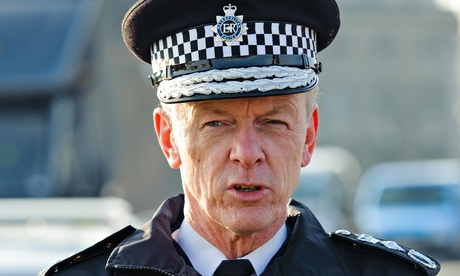
It is less than two years since the Leveson report on the press. One of the key issues in the inquiry was the treatment of celebrities. Another, umbilically linked, was the relationship between the press and police. At the interface between the two, the report said that police sometimes tipped off the media about high-profile raids on celebrities, and debated the pros and cons of media “tagalongs” on police raids and operations. One way or another, these sensitive issues have rarely been out of the public eye ever since.
In his report, Lord Justice Leveson approvingly quoted the Metropolitan commissioner Sir Bernard Hogan-Howe’s view that it was crucial that “the individuals who are the suspects or are the subject of arrest when you get there, or were being sought when you arrived, are not identified, and there should be nothing, the written nor the visual accounts, that allow that to happen”. Leveson himself said that police professionalism “must be sufficiently robust to instil the mindset that such leaks about forthcoming arrests or the involvement of the famous in the criminal justice system are not in the public interest”. Current Association of Chief Police Officers’ guidance says that “the identities of people who come under suspicion of an offence as a result of police attending a location, with or without a warrant, are generally not volunteered by forces”. The report recommended a tightening-up of that guidance.
This week, South Yorkshire and Thames Valley police raided the Berkshire apartment of Sir Cliff Richard in an operation which has not yet led to any criminal charge and which concerns allegations that Sir Cliff describes as completely false. The police were accompanied by journalists and press photographers, while media helicopters hovered overhead for much of the five-hour raid. Accounts of who tipped off whom are unresolved. But the BBC was among those who knew about the raid in advance and also had time to station a reporter outside Sir Cliff’s holiday home in Portugal. Yesterday’s papers, including the Guardian, were full of coverage of the case.
This is an evolving and sensitive story. It may lead somewhere or nowhere. But the relationship between the police and the press in this case raises, yet again, wider and troubling issues about the way that due process, and the presumption of anonymity for suspects, including celebrities, lacks the robustness that was called for by Leveson and to which the police – and the press – are supposed to be committed. When the dust settles on this week’s events, there could be a strong case for fresh reflection and a stronger set of rules to prevent prejudicial coverage of such cases.

